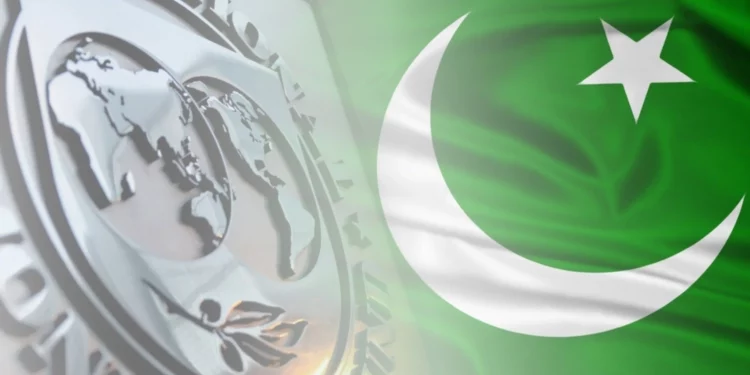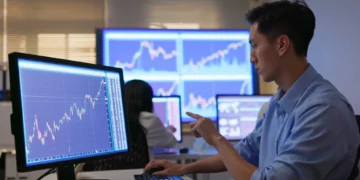Pakistan has been approved for its long-withstanding bailout package of $3 billion (£2.3 billion) by the International Monetary Fund (IMF) board. $1.2 billion will be released as the first payment to stabilize the struggling economy. The remaining amount will be paid periodically over nine months.
The inflation-stricken South Asian country and the IMF agreed upon a deal just last month. They have sealed a short-term aid to save themselves from defaulting.
Pakistan has got a serious issue with their balance of payments, with tonnes of necessary food items blocked at ports due to non-payment of dues. The exchequer is dealing with an acute shortage of foreign exchange reserves. Some estimates suggest they are left with bare minimum reserves to import goods for the next month.
The global lending institution has said that they have approved a 9-month Stand-By Arrangement (SBA) for a bailout loan worth SDR 2,250 million ($3 billion or 111% of the quota). This will provide relief to the unstable economy.
A board executive of the IMF commented that the program had given a green signal because Pakistan has had a series of troubling events in recent times like devastating floods, political turmoil, internal riots, hyperinflation, rapidly declining foreign exchange reserves, and deepening fiscal deficit.
Shehbaz Sharif, the Prime Minister of Pakistan, said that the bailout program is a big step toward the stabilization of the inflation-hit economy. The package will boost the nation’s present economic condition to meet its near-term economic requirements; it will also help provide some buffer for the next government to draft monetary policies.
Loan from Saudi Arabia
Pakistan had also asked for funding from its counterparts in the Islamic world. It received a central bank deposit of $2 billion from Saudi Arabia and an additional $1 billion from the United Arab Emirates. The Gulf nations had already approved this funding but had halted the process until the IMF gave a green signal to the deal.
Pakistan’s foreign exchange reserves will rise by around $15 billion due to funding from the oil-rich nations and the IMF. The funds from just the two middle eastern nations will almost double the forex balance of last week; it would be an increase of $7.5 billion.
These funds will provide sufficient relief to the crippling economy of Pakistan, at least for the near term. It has also received funds from its central Asian partner, China, amounting to $5 billion over the past 3 months.
IMF’s Deal
An IMF official has said that their funds will provide a safe space for policy formulation considering the internal and external factors in play and an array of financial aid from its multilateral and bilateral partners.
It mentioned that the program would focus on the budget for the financial year 2024. It needs to alter Pakistan’s fiscal and debt mismanagement, ensuring appropriate social spending requirements are met. It has plans to bring a market-determined exchange rate and improve the functioning of the forex market to resolve imbalance and resilience to global impacts.
The IMF has strictly advised Islamabad to formulate a policy designed to lower inflation and tighten monetary policy. It has also demanded certain structural changes, especially in economic-driving sectors like energy, infrastructure, public sector enterprises, etc.
Current Scenario
The fresh funding has presented Pakistan with an upgrade from Fitch, a global credit rating agency. It has upgraded the credit ratings from CCC.
The few finalized deals have provided some immediate effects, visible on the stock market, foreign exchange rate, and bonds. At the time when the IMF gave an initial go-ahead to the deal, the bond market soared, though the country was crippling under the pressure of a mountain of debt.
The current inflation in Pakistan is almost 30%, as per official data. The cost of living has gone far beyond the reach of common citizens. The central bank interest rates have been raised to 22% to tackle inflation. All these steps failed to slow down inflation or decrease the cost of living. Pakistan has been a regular receiver of funds from the IMF. Since 1958, it has taken more than 20 loans for various reasons.

















